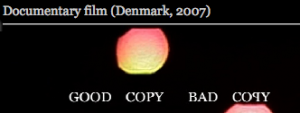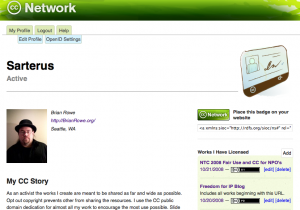
Live blogging from the first social justice week brown bags. Professor Margaret Chon is giving an introduction to A2K (Access to Knowledge) and the relationship of Intellectual property and social justice. We had about 10 students attend the event. After a short presentation about the role of standard there was a Q&A with discussion. Here are my notes:
What disciplines affect access to knowledge?
Access to Knowledge – Standards
Innovation Systems – Open Source
Digital education – CC Licenses
Climate change – Clean development mechanisms (CDM)
Public health – Food safety standards
Human rights – Social performance standards
Normative Pluralism
On one end is Regulatory Entrepreneurs and on the other side is regulatory Oligopolists. Another way to view this scale is soft law or recommendations on one end and hard laws on the other end. Soft laws examples include seals of approval or fair trade; while hard law includes TRIPS the DMCA each with enforceability.
Problems
Who are the stake holders and are they involved in the process?
Who watches the standard setting orgs?
How expensive is it to get involved in setting standards?
Can companies set fair standards over themselves?
Is there transparency in the system?
Too many standard can cause consumer confusion.
Where to go next
Gain awareness about other movements and learn from them.
Create soft law norm and push
A2K can be A2J
Q: Do soft law solutions prevent hard law solutions?
Yes and they can cause consumer confusion.
Light labeling
Green Washing
Private regulation also
Q: Are standards new? (in the social justice realm)
A: yes ISO really took off in the 80′s then the ISO 9000 standards came about in the 90′s. This has been followed by large scale standard proliferation.
Q: How does the economic crisis effect soft standards?
A: The crisis is affecting some companies like Whole Foods where you pay a premium for organic. We hope the standards are her to stay but do not know. It is a good question and we do not know. Often the fair trade prices are not higher.
Terms:
Direct trade – eliminating the middle man
Counter culture direct trade – 25% above market for fair trade products
Q: How do we make the standards more transparent?
A: add human readable code and more disclosure
Q: What beyond transparency is needed?
A: How many details do we want to make available.
This was a great event thanks to the whole social justice coalition for making this happen! If you have a chance I strongly recommend attending one of the professor brown bags this week.






